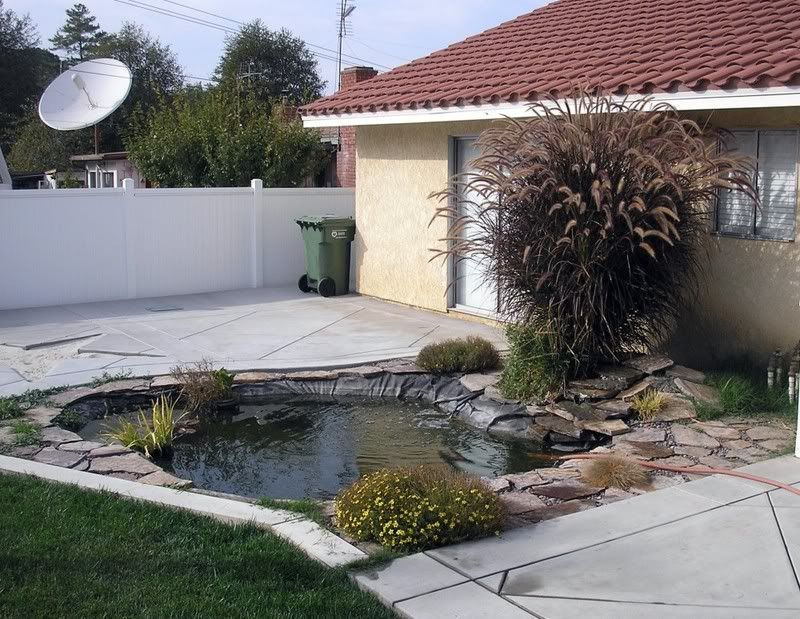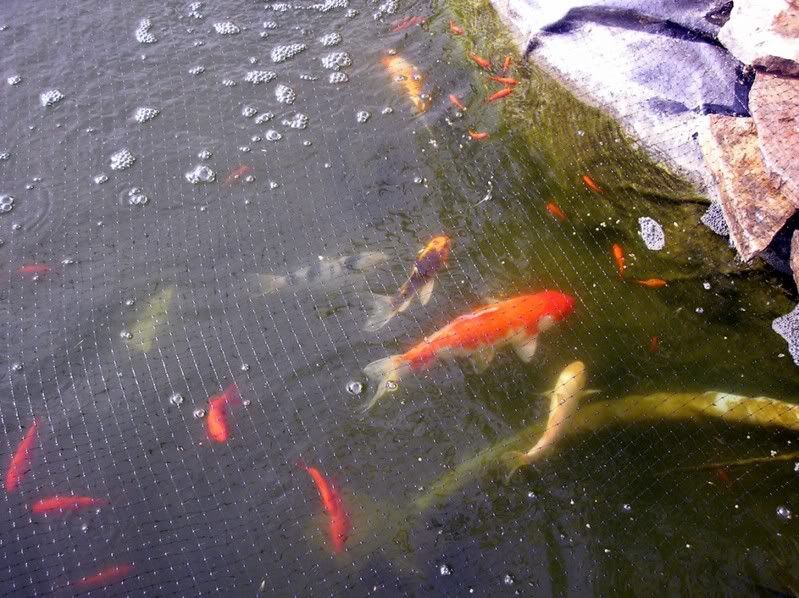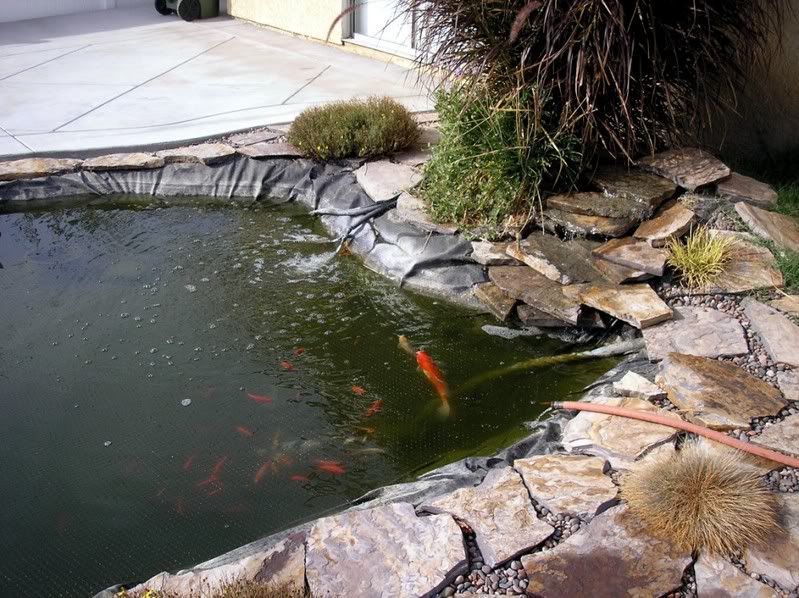As neat as it may seem to watch birds etc drink out of the pond its a potential for a problem. Bird droppings can create all kinds of disases with a fish pond, and can create fungal infections on the fish. I would dop my best to keep any and all birds away from the water the fish are in in that pond. In naature there is more water, and a dirt / mud bottom that handles these pathogens and keeps them in check, but on occassion they do rear their ugly heads and cause problems. I raise koi and gold fish and sell a heap of them to local pond and water garden shops in the south east, and take every precaution I can to drive away all the feathered critters I can. Its only a mtter of time until the birds cause a problem.
Another hting is your netting really needs to be up much higher than it is. A heron has a decently sized bill and its easy for one of them to
[hr]
a fish with the netting being so close to the water. A speared fish is prone to infections and once again can cause problems. Use PVC pipe and fittings to make a raised net. I have seen herons walk on netting that was close to the water, just stabbing at fish, even though the bird wsa not capable of getting a koi through the net, it made no difference to it stabbing at them. Herons are predators and night time is perfect for them., I often find herons around the ponds fishing when its dark. Rain and darkeness is not a hinderance to a heron or egret by any means. Odds are you can not get a permit, but its possible to get a permit to shoot and kill herons. Hobbyists are not eligible but if its a business it is doable. With as many catfish farms and bass and bream and tilapia farms as there is around my area,m herons are not too bad of a problem anymore. Years back you could "eliminate" a heron today and tomorrow another would move in to take its place, now you can go months without seeing them around, but just go tot he river and mashland area about 10 miles away and its loaded with them. Its not that they are endangered, its that they are a migratory bird so they are automatically covered in the migratory bird protection act. From what I hear and read, they are fixing to be removed from that list as they are just over populated in the southeast areas as well as most everywhere else.











